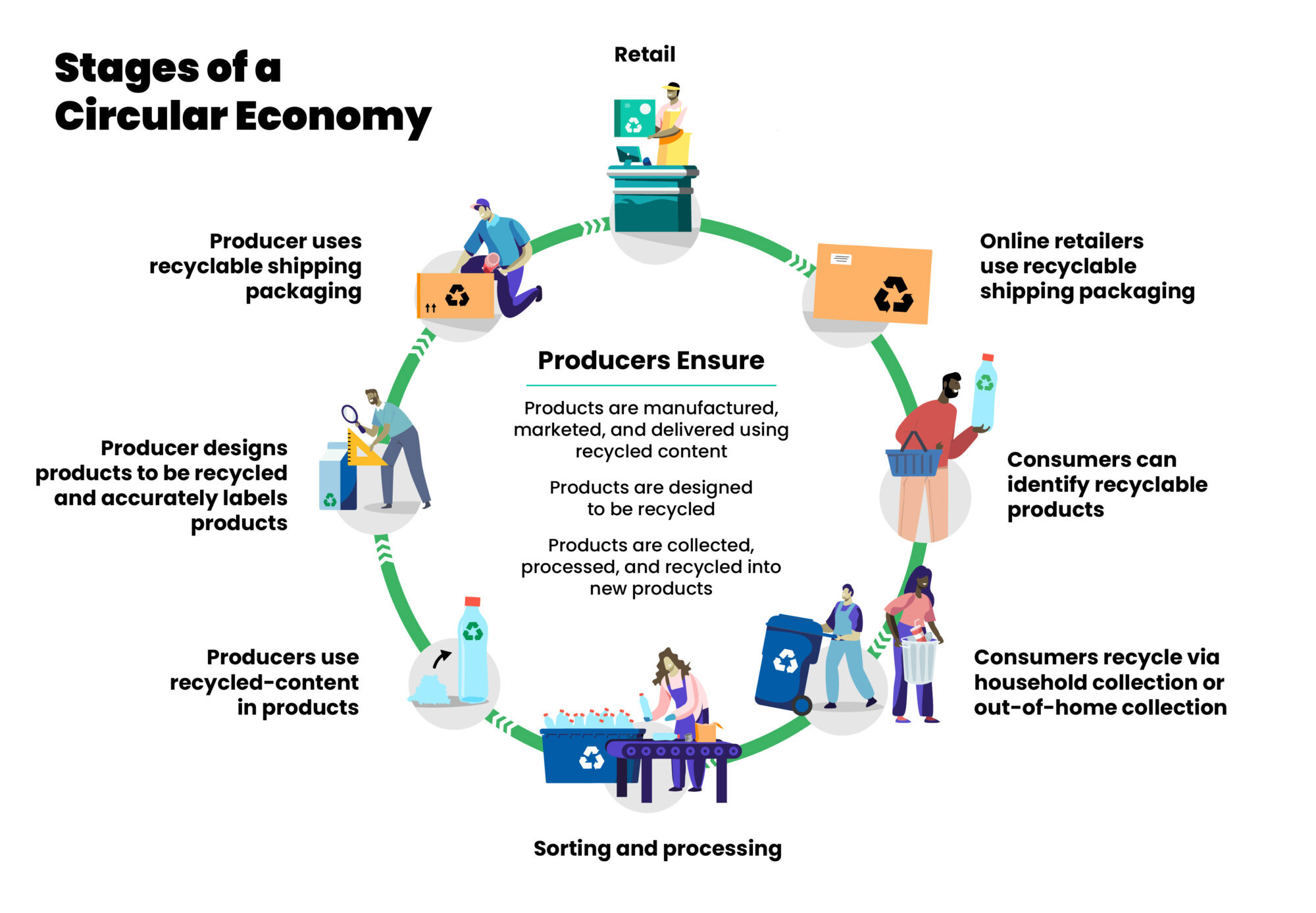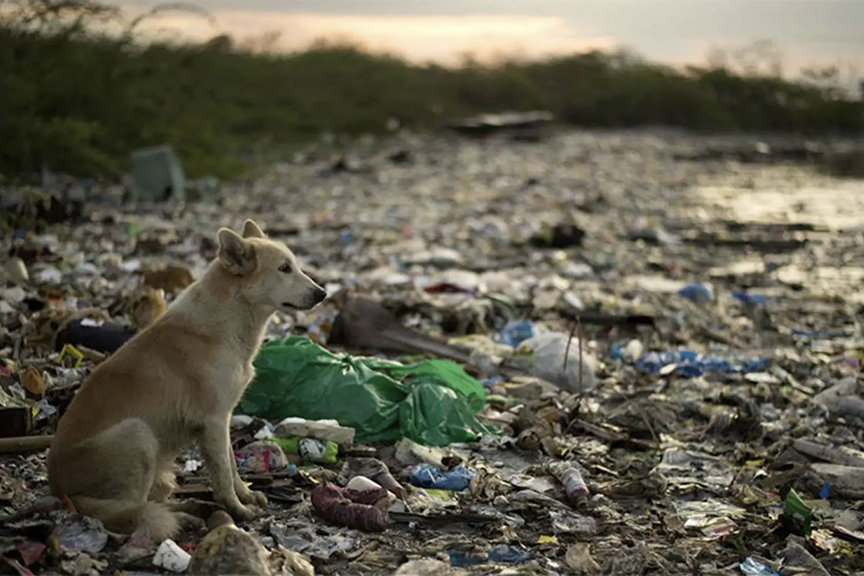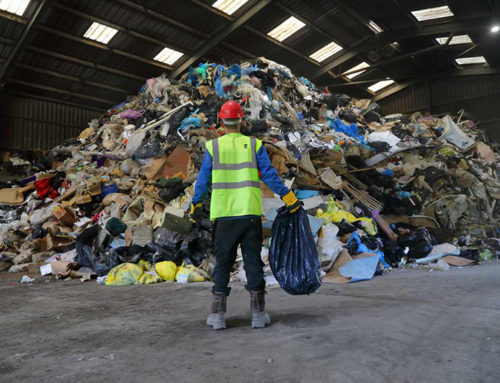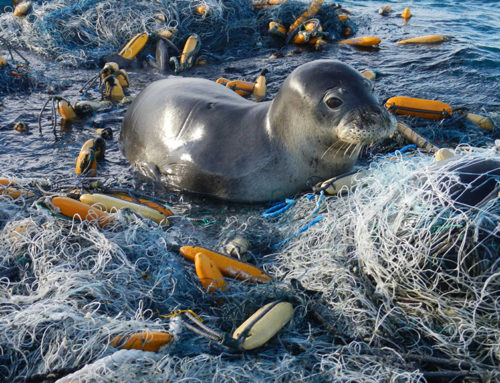In the modern era of heightened environmental consciousness, businesses face increasing scrutiny over their plastic waste management practices. Among the most pressing issues is the handling of plastic waste, a ubiquitous byproduct of countless industries. Failing to manage plastic waste properly can have significant economic repercussions for businesses, encompassing potential fines, cleanup costs, and a loss of consumer trust. However, these fines are often just seen as a part of doing business, ultimately burdening consumers with higher prices and neglecting the need to protect the environment.
The Rising Tide of Fines and Regulations: Just Another Cost of Business
Governments worldwide are tightening regulations on plastic waste management, imposing hefty fines on businesses that fail to comply. For instance, in the European Union, the Single-Use Plastics Directive mandates that companies reduce the use of certain plastic products and ensures that producers pay for waste management and cleanup. Non-compliance can result in substantial fines, directly impacting a company’s bottom line.
In the United States, similar legislative measures are being enacted at both federal and state levels. California’s Plastic Pollution Prevention and Packaging Producer Responsibility Act requires businesses to ensure their plastic packaging is recyclable or compostable, with non-compliance fines reaching up to $50,000 per day. While these financial penalties are intended to enforce better practices, for many large corporations, they become just another cost of doing business, easily absorbed and passed on to consumers.

Passing the Buck: The True Cost of Fines
When fines and regulatory costs are factored into the price of products, it’s the consumer who ultimately pays. Companies often roll these expenses into their pricing structures, leading to higher costs for everyday items. This practice can make it appear as though businesses are shouldering the burden of environmental responsibility, while in reality, the financial strain is transferred to consumers.
This economic dynamic benefits governments, which collect the fines, but it does little to address the root problem of environmental degradation. Instead of incentivizing real change, it perpetuates a cycle where businesses pay to pollute, and consumers foot the bill, all while the planet continues to suffer from plastic waste.
Cleanup Costs: A Burden on the Balance Sheet and Beyond
Beyond regulatory fines, businesses face the daunting prospect of cleanup costs associated with plastic waste mismanagement. Environmental spills or improper disposal can necessitate extensive cleanup operations, often involving specialized services to mitigate environmental damage. These cleanup efforts can run into millions of dollars, further impacting pricing structures and consumer costs.
For example, the 2018 plastic pellet spill in South Africa, known as the “nurdle spill,” saw companies involved in the supply chain facing immense cleanup costs and legal battles. Such incidents underscore the financial risks associated with inadequate plastic waste management, with costs ultimately passed down to the consumer.

Consumer Trust: The Priceless Commodity
Perhaps the most significant economic impact of poor plastic waste management is the erosion of consumer trust. In today’s market, consumers are increasingly driven by values and are more likely to support companies that demonstrate a commitment to sustainability. Businesses caught mishandling plastic waste can suffer irreparable damage to their brand reputation.
Recent surveys indicate that a significant portion of consumers are willing to pay more for products from environmentally responsible companies. Conversely, scandals involving plastic waste mismanagement can lead to boycotts, negative publicity, and a decline in sales. The loss of consumer trust can have long-term repercussions, affecting customer loyalty and market share. It seems to be the best foothold environmentalists have.
A Proactive Approach: Turning a Liability into an Asset
Despite these challenges, businesses do have the opportunity to turn plastic waste management from a liability into an asset. By adopting sustainable practices, companies can mitigate financial risks and enhance their market position. However, it takes effort and change. Implementing comprehensive recycling programs, investing in biodegradable alternatives, and participating in environmental initiatives are steps that can yield economic benefits and an overall improvement in how much waste the Earth ingests.
Moreover, transparent communication about these efforts can bolster consumer trust and attract environmentally conscious customers. Companies like Patagonia and Unilever have set benchmarks by integrating sustainability into their core business strategies, reaping both financial rewards and consumer admiration.
The economic implications of failing to manage plastic waste properly are profound. While businesses face potential fines and substantial cleanup costs, these are often passed on to consumers, leading to higher prices and perpetuating environmental degradation. Governments benefit from collecting fines, but without enforcing real change, the planet and its inhabitants continue to suffer. To break this cycle, businesses must adopt proactive, sustainable practices that not only protect the environment but also restore consumer trust and ensure long-term economic stability. Investing in proper plastic waste management today is not just a financial necessity but a moral imperative for a cleaner, healthier future.
Remanufacturing Inkjet Cartridges: A Cost-Effective and Environmentally Friendly Solution that Sets a Standard Example.
When comparing the remanufacturing of inkjet cartridges to the elevated costs of doing nothing, the benefits become strikingly clear. California based Planet Green Recycle has proven that remanufactured and properly recycled inkjet cartridges not only help reduce environmental impact but also offer significant cost savings for consumers. Their cartridges are produced in the US, reducing waste and are made available for consumers at up to 70 percent less than regular retail costs, demonstrating that sustainable practices can be both economically and environmentally advantageous.
Economic Efficiency
Remanufacturing inkjet cartridges involves collecting used cartridges, refurbishing them to meet or exceed original performance standards, and reselling them at a fraction of the price of new cartridges. This process drastically cuts production costs since it reuses the existing materials, which are often the most expensive part of manufacturing. These savings are passed on to consumers, who can purchase high-quality cartridges for much less than brand-new ones. In contrast, doing nothing or improperly disposing of cartridges leads to increased waste management costs and the need for more raw materials, which drives up prices.
Environmental Benefits
The environmental benefits of remanufacturing inkjet cartridges in the US are substantial. Each remanufactured cartridge prevents the disposal of plastic and metal in landfills, reducing the demand for new raw materials. This practice significantly lowers the carbon footprint associated with the production of new cartridges, as it minimizes the energy and resources required for manufacturing. That waste is reflected in the overseas production of new third-party ink cartridges that are often marketed as remanufactured, when in fact, they are pillaging the environment to create single-use trash that goes from low quality manufacturing facilities, straight into US landfills via Amazon and similar sales platforms. Proper recycling and remanufacturing, like that performed at Planet Green Recycle, helps mitigate the staggering statistic that over 375 million ink cartridges end up in landfills every year. Instead of waste, proper recycling improves every aspect of the process, from manufacturing to consumer sales and use.
Consumer and Corporate Responsibility
The success of US remanufactured cartridges in the market illustrates that businesses can adopt environmentally friendly practices without compromising profitability. By choosing US remanufactured cartridges, consumers support a circular economy that values sustainability and resource efficiency. This consumer demand, in turn, incentivizes companies to prioritize eco-friendly practices, further reducing environmental impact and fostering a market that balances economic and ecological health.
In the end, it’s a choice. Pour overtaxed dollars into high cost products that cover the costs of padding a government’s bank account – or just properly recycle. It seems obvious but without awareness, people are oblivious to what they pay for.






